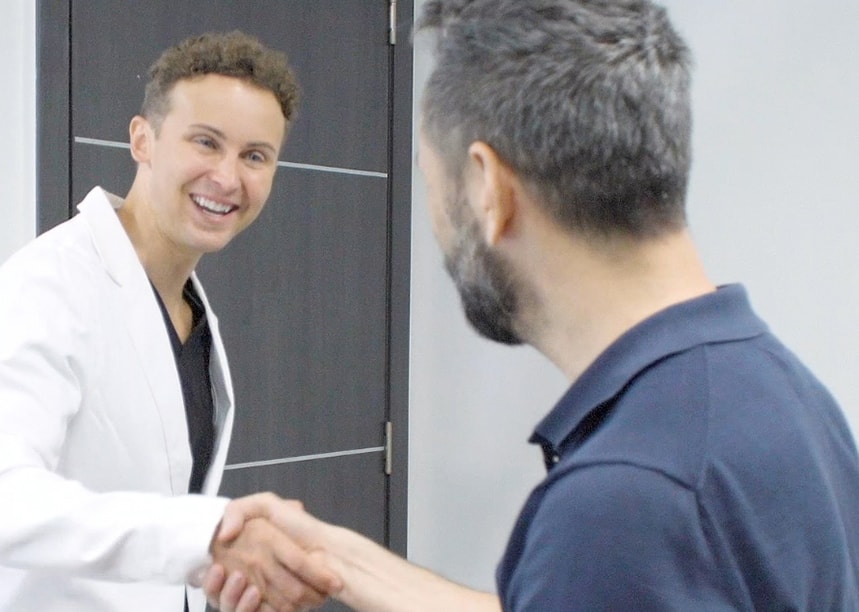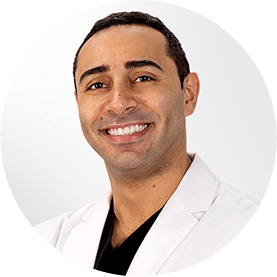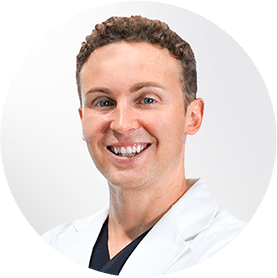Advice from a Renowned Back Pain Dr Near Me In New Jersey
October 25, 2021
Dr. George Hanna Recommends 5 Non-Surgical Sciatica Treatment Options
If you have low back pain, you are probably aware of how disruptive it can be to your daily life. Sciatica pain starts in the lower back and can spread to the hips and legs, producing pain, as well as numbness and weakness in the hips and legs. If left untreated, this might impede your mobility, making simple actions like walking, sitting, driving, and working out difficult over time.
In most cases, pain in the lower back emerges because something is compressing or pinching your sciatic nerve. Due to injuries, a bad posture, or a medical condition, muscles, joints, or bones can put pressure on the nerve and cause inflammation accompanied by discomfort. In most situations, over-the-counter pain relievers and self-care can minimize these symptoms, but it’s always a good idea to visit an interventional pain expert and detail your symptoms to ensure you’re not doing anything that might harm your back.
One of the main reasons why people dealing with sciatica avoid seeking medical treatment is the fear they may end up on the surgical table. Surgery, however, is the last method of treatment doctors will recommend, and they only do it if minimally invasive alternatives don’t work. To help you understand your options, Dr George Hanna, a board-certified back pain Dr near me in New Jersey is here to talk about the most commonly recommended non-surgical treatment options for sciatica.

1. Prescription medication
When dealing with sciatica, the first bit of advice you’ll hear is to take a painkiller and wait for the pain to go away. Many individuals find relief with over-the-counter medication, and they can return to their pain-free lives within days, but if this type of medicine is ineffective, your doctor will prescribe a stronger option.
The types of pain relievers doctors usually prescribe are:
- Oral steroids, such as Prednisone
- Nonsteroidal medicine such as Ibuprofen
- Tricyclic antidepressants such as Amitriptyline
- Opioid analgesics such as Oxycodone
The role of these pain relievers is to either alleviate the symptoms entirely or diminish them so that patients don’t feel discomfort during physical therapy or other treatment forms.
2. Physical therapy
Depending on your condition, your back pain doctor can recommend physical therapy either as a standalone treatment or in conjunction with other treatment methods to speed up the recovery process. It generally consists of a series of core-strengthening stretches and exercises that may be done at home or under the guidance of a skilled physical therapist.
Physical therapy can help with a lot of things, including strengthening the back muscles so that they can provide more support to the spine, improve flexibility and core strength, stimulate blood flow, and promote muscle relaxation.
With high discomfort, it may be a bit difficult to convince yourself to start moving, which is understandable. Still, incorporating light exercises into your daily routine is going to help your back more than anything else.
3. At-home pain management
Your doctor will likely advise you to make certain lifestyle adjustments as well as recommend specific care for your condition at home, in addition to adequate medical therapy. Inflammation and discomfort, for example, can be reduced with the use of hot and cold therapy, which is very easy to do at home.
If you have to sit for lengthy periods of time every day, your doctor may advise you to take regular standing breaks to relieve pressure on your lower back and prevent pain. To aid with muscle relaxation and nerve decompression, doctors recommend sleeping on your side with a cushion between the knees. Although not always recommended, you can also sleep on your back, with a pillow placed beneath the knees instead.
While it may seem counterintuitive, avoiding sedentarism is the key to preventing sciatica and can help you cope with it as well. To strengthen muscles, give additional support to your spine, and avoid bone degradation as you age, you should create a light workout routine and commit to it.
4. Chiropractic care
The goal of chiropractic therapy, commonly known as manual spinal manipulation, is to promote spinal alignment and pain relief. It’s been used for quite some time and, while not recommended with severe back conditions, it can help bring relief in an acute sciatic episode.
Chiropractic therapy has also been shown to be an effective treatment strategy for herniated discs and spinal stenosis when performed alone or in combination with other procedures.
5. Minimally invasive procedures
Many pain specialists believe that minimally invasive techniques are the most effective option to treat sciatica without having to see an orthopaedic surgeon. They can reduce pain, boost the effect of other treatment methods, and even help with diagnosis and pain localization.
Epidural steroid injections are one of the most recommended methods of treatment. Herniated discs, degenerative disc disease, and spinal stenosis are just a few examples of conditions these injections can help with. When injected into the epidural region, steroids spread to nerve terminals and relieve pain. Your doctor will use this treatment to try to manage the inflammation and diminish the immune system’s activity in order to reduce the formation of inflammatory cells.
Selective nerve root blockers are also effective treatment options that can help reduce inflammation and inhibit pain signals. During a single session, the procedure can be conducted on numerous nerve roots. Some patients report instant pain alleviation, while others require more than four weeks of therapy to see improvements.
As we’ve learned today, surgery is not the only option for treating sciatica or back pain. In fact, it’s not even among the first options!
At our spine center, our dedicated and experienced team of back specialists helps patients dealing with leg, hip, back, or neck pain find the most appropriate methods of treatment for their condition. By using state-of-the-art equipment and taking a close look at your medical history, our doctors will assist you in getting back to your everyday life in the shortest time possible. Keep in mind that we are available for phone general inquiries as well! You can book an appointment with Dr George Hanna, one of the best back pain Dr near me in New Jersey, at one of our pain clinics in Paramus on Route 17, near the Paramus Park Mall, in Clifton, NJ, on Route 46 E, past the Ford dealership, in West Orange, near the Essex Country Club, and in Woodland Park clinic, on McBride Avenue, right next to Woodland Park Dialysis Center.
Book a Consultation
Scheduling a consultation with one of our pain treatment specialists is one of the best ways to determine the proper solution for pain relief.
Meet Our Team of Back Pain Specialists
All of our Pain Doctors in New Jersey are Harvard Trained and Board Certified in Pain Management

Back Pain Doctor Clifton & West Orange NJ
Dr. George Hanna
Dr. Hanna is a Harvard Trained back specialist in New Jersey and New York. He serves as Medical Director of Pain Management.

Back Pain Doctor Clifton & West Orange NJ
Dr. Laura Lombardi
Dr. Lombardi is a Harvard Trained back pain treatment doctor, currently seeing patients in Clifton and West Orange, New Jersey.

Back Pain Doctor Clifton & West Orange NJ
Dr. Shane Volney
Dr. Volney is a Harvard Trained back treatment doctor seeing patients in the NJ areas of Clifton & West Orange, and in NYC.

Back Pain Doctor Clifton & West Orange NJ
Dr. Michael Nguyen
Dr. Nguyen is Harvard Trained and Board Certified in Pain Management. His pain center accepts major medical insurances and Medicare.

Dr. George Hanna

Dr. Laura Lombardi
Dr. Lombardi is a Harvard Trained back pain treatment doctor, currently seeing patients in Clifton and West Orange, and Paramus New Jersey.

Dr. Shane Volney
Dr. Volney is a Harvard Trained back treatment doctor seeing patients in the NJ areas of Clifton & West Orange, and in NYC.

Dr. Michael Nguyen
Dr. Nguyen is Harvard Trained and Board Certified in Pain Management. His pain center accepts major medical insurances and Medicare.
